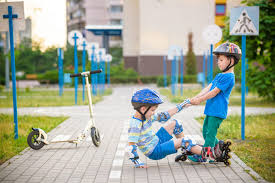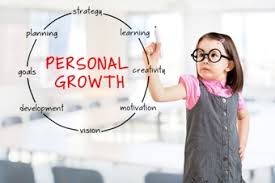
INDIANA – Life can be described as a roller coaster, riding the highs and sometimes dropping to unexpected lows. There are undoubtedly different emotions and feelings we experience along the way.
Resiliency is the ability to adapt well to trauma, tragedy, threats, and other stress areas. It is essential to raise children to be resilient through the highs and lows of this quick ride called “life.” The exciting news is that resiliency can be taught.

Resiliency can come from a child’s beliefs, personality traits, and environmental influences. Children who believe they can influence the world rather than the world controlling who they are can be more resilient to change. They also have a higher chance of managing emotions and creating better coping skills.
A key component when ensuring your child can be resilient through life’s trials is helping them form connections. Demonstrate and encourage your child to build a support system and get involved in a community to create a resilient environment. Connection provides support during challenging times or situations that may be out of our control.

Self-care is another routine practice that can ensure your child radiates with resiliency. Self-care is the act of improving or protecting one’s happiness and well-being. This can be as simple as working out, eating healthy foods, and getting enough sleep.
Ensuring your children incorporate enjoyable activities into their routines can also give them an outlet during stressful times while preserving their happiness. These activities might include clubs, sports, Scouts, music lessons, or other social activities.
Self-care also involves knowing when to take a break. Children can have busy schedules or feel overwhelmed from time to time. Ensure they have time to decompress and slow down to process their emotions.

Children or teens who have access to at least one trusted adult in their lives are more resilient. Children need an outlet where they can healthily express their emotions. These outlets might include talking to someone like therapists, counselors, a parent/guardian, a friend, or another trusted adult.
As a parent/guardian, be open and honest with your school-aged children using simple statements. Be a listening ear even if you do not agree with their concerns or emotions. It is essential for children to feel heard. Guide them to problem-solve or express themselves in a healthy way.

Teaching your child to set goals is a great habit to start as a family and can create an emotionally well-rounded child. Setting goals allows us to see how far we have come and motivates us to continue. Goal setting can be as simple as journaling any goals we would like to achieve in the future. Another healthy way to journal is to list what you are proud of accomplishing that day, something that made your day, or express each emotion you felt. These techniques can guide you to more self-awareness, ultimately making you more flexible with the ebb and flow of life. Taking that step to express yourself (for your eyes only) is one of the most powerful self-improvement techniques one can practice.
Change can be scary for children, teens, and even adults. Help your child understand that change is a part of life. Focusing on the positives of change can make your child more optimistic. Please point out their positive changes, such as moving up a grade at school.

Take steps to teach your child and family to be resilient during the highs and lows of life’s rollercoaster ride. Hiding what is happening in their world may only postpone anxiety that can pop up later. However, telling them too many details of hardships or tragedies could fuel their fears and worries.
By introducing routine, self-care, connections, goal setting, positivity, and ensuring your child has at least one trusted adult to confide in, you can build resiliency and change how your child adapts to struggles and hardships.

Camryn Cater, MSW, LSW, is a Youth First Mental Health Professional at Scott Elementary School in Vanderburgh County. Youth First, Inc., is a nonprofit dedicated to strengthening youth and families. Youth First provides over 100 highly trained mental health professionals (primarily master’s level social workers), prevention programs, parent engagement coordinators, and bilingual support personnel to 126 schools across 14 Indiana counties. Over 53,000 youth and families per year are served by Youth First’s school-based social work and community programs that promote mental health, prevent substance misuse, and maximize student success. To learn more about Youth First, visit youthfirstinc.org or call 812-421-8336.



